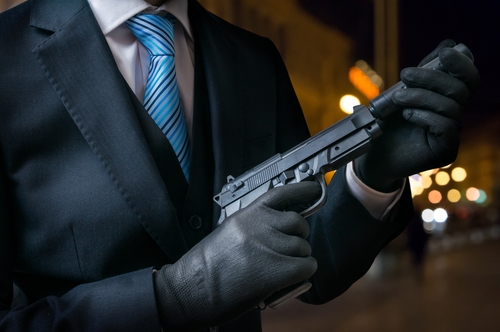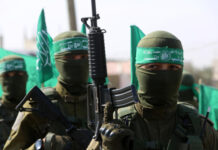
Democratic presidential candidate Robert F. Kennedy Jr. once again appealed to Joe Biden for Secret Service protection.
This plea comes in the wake of an alarming incident where an armed man was apprehended at one of Kennedy’s campaign events. The event took place alarmingly close to the location where his father, Robert Kennedy, was assassinated in 1968.
The Secret Service, as per its mandate, provides protection to major presidential and vice-presidential candidates, typically within 120 days of the election. However, it does not have the authority to independently initiate candidate protection.
It is worth noting this protocol was established following the assassination of Robert Kennedy in 1968. Before this tragic event, candidates and their families were not entitled to Secret Service protection.
🚨 Failed attempt to assassinate RFK Jr?
A man who looks like law enforcement
Had the badges & was armed
Arrested at an event where RFK Jr was supposed to speak
The fact the MSM is avoiding this tells me everything I need to know
— E (@ElijahSchaffer) September 17, 2023
Kennedy’s appeal for protection is not without precedent. Former President Donald Trump, during his final days in office, extended post-presidency Secret Service protection to his four adult children and two of their spouses.
Furthermore, some presidential candidates have been granted early protection due to the number of threats they received. Barack Obama, for instance, was approved for protection almost two years prior to the presidential election, marking a historical first.
The recent incident at Kennedy’s campaign event was indeed alarming. An armed man, carrying loaded pistols and spare ammunition, attempted to approach Kennedy while he was delivering a speech at the Wilshire Ebell Theatre in Los Angeles.
The man, who falsely identified himself as a member of Kennedy’s security detail, was swiftly intercepted and detained by alert protectors from Gavin de Becker and Associates (GDBA) until the LAPD arrived to make the arrest.
🚨BREAKING: RFK Jr. Is calling for Joe Biden to debate him before the 2024 election.
Do you agree RFK Jr. And Biden should debate? pic.twitter.com/447n5G2jwo
— Ian Jaeger (@IanJaeger29) September 18, 2023
Despite trailing significantly behind Biden in the polls, Kennedy’s campaign manager, Dennis Kucinich, has expressed concern over the increasing threat level to their candidate.
In a letter to President Biden, Kucinich highlighted the historical context of political assassinations in the 1960s and the potential for civil chaos and political disintegration should such events recur.
The decision to grant Secret Service protection is not solely at the discretion of the president.
The Secretary of Homeland Security can also approve federal protection with the permission of an advisory committee. However, some presidential contenders have rejected a protective detail, citing it as an inconvenience and a waste of taxpayers’ money.
As Kennedy continues his campaign for the Democratic nomination, his plea for protection remains unanswered.













